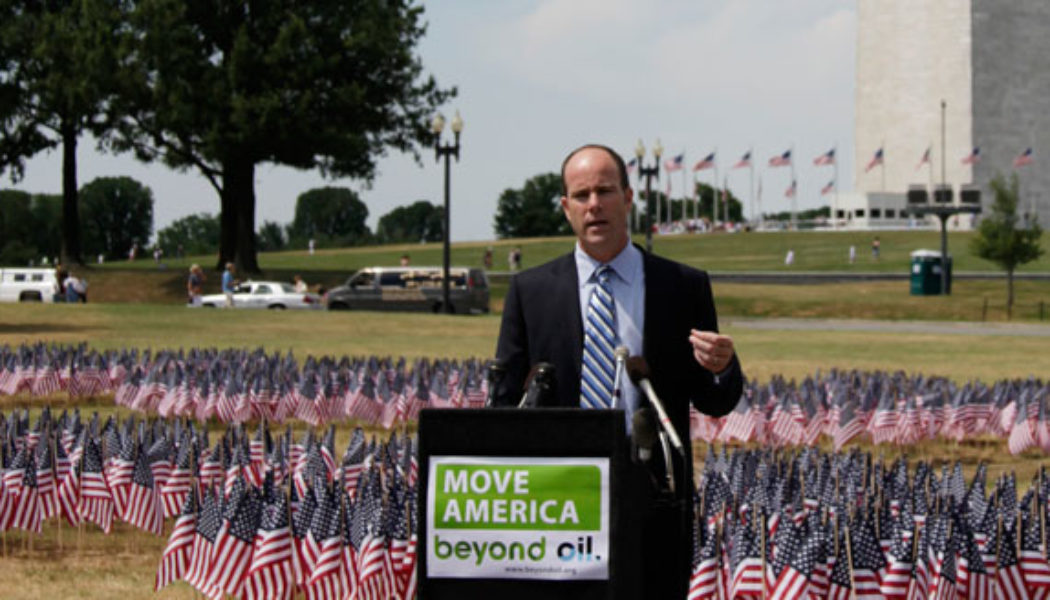As the nation convulsed in the wake of the killing of Floyd, an unarmed Black man, by a white policeman, Brune implored in a public July 22, 2020, post that his group must “take down some of our own monuments, starting with some truth-telling about the Sierra Club’s early history.” He chastised Muir, the storied conservationist who influenced President Theodore Roosevelt and helped spur the National Park Service, for his “derogatory comments about Black people and Indigenous peoples that drew on deeply harmful racist stereotypes.”
But the post’s contents and framing of Muir are a misrepresentation, Aaron Mair, a Sierra Club board member and its past president, told POLITICO.
Mair, who in 2015 became the first Black president of the Sierra Club board, said the push overlooked years of organizational work on environmental justice, including committees that reviewed monuments and leaders who were racist. He said Brune did not consult him or the other two Black board members before pushing ahead on what he called a “revisionist” and “ahistorical” account of Muir’s writings, thoughts and life.
“For it to be framed that the Sierra Club just only a year ago decided to come clean — it’s just wrong,” Mair said. “This stuff did not come out all of a sudden under the outgoing executive director.”
Sierra Club spokesperson Maggie Kash said in an email that Brune’s resignation was not related to the internal dispute. Brune did not respond to multiple requests for comment.
Board President Ramon Cruz noted the group’s board of directors “overwhelmingly approved” the organization’s “current position on the historical context of our early founders.”
“They are each of course entitled to their own opinions, and the Sierra Club Board of Directors has encouraged and will continue to foster an open and civil discourse about historical figures, as well as environmental policy,” Cruz said in a statement.
In his blog post, Brune touched on criticisms environmental justice groups have made about older wilderness-focused organizations like the one Muir helped found. They have been viewed as historically antagonistic to places of cultural, racial and ethnic value, with the concept of preserving land for nature led by white Americans wielding institutional power coming at the expense of marginalized people and groups and their land.
Chad Hanson, a historian and Sierra Club board member, said the board of directors normally would have been consulted for an action akin to Brune’s July 2020 post. But he said that did not happen, noting that even Muir historians rejected the portrayal of him as a white supremacist.
Kash, the Sierra Club spokesperson, rejected that account. She said Brune consulted with board leadership prior to publishing the blog post even though that step was not required, adding the team that wrote the post referenced expert research and Muir’s own writings.
Hanson said it is important to acknowledge the Sierra Club’s history with racism, with early board members serving alongside Muir like white supremacist Joseph LeConte and eugenicist David Starr Jordan. But he said casting Muir incorrectly is not only wrong but counterproductive for the environmental movement that is trying to deepen ties between conservation groups that have historically white memberships and environmental justice groups that represent communities of color.
“The potential damage is done particularly when there are false allegations made,” he told POLITICO. “It creates potential division between conservation and environmental justice, and we can’t afford that.”
Minutes from a March 10, 2021, board of directors meeting obtained by POLITICO painted a picture of the debate.
A majority of board members and some staff encouraged the organization to put the dispute to rest in order to highlight and avoid overshadowing current progress on racial justice. The minutes noted a communications manager said there was “desire” for more conversation, but that Black, Indigenous and people of color staffers “are also asking for us to be able to move on and focus on our equity journey.”
Board member Ross Macfarlane’s sentiment was characterized as “we need to move on” to confront “massive issues, around democracy, social justice, and equity. This will help us make sure we are speaking in one voice.” Macfarlane, the board’s vice president for conservation, deferred to Cruz and Sierra Club’s media team for comment.
While it is true that Muir in his personal journal as a young man used terms that would now be considered racist, those words were the nomenclature of the time with specific meaning, Mair said. Mair read all the founder’s writings before taking the reins of the board: He witnessed a man who evolved beyond those early musings in his diary, and who reserved his sharpest critiques for industrialism and white men who valued money over all.
Mary Ann Nelson, who was the Sierra Club’s first-ever Black board member, signed up for a task force reviewing Muir’s writings following the July 2020 post. A Sierra Club volunteer since the 1970s, she had previously served on a number of committees devoted to advancing environmental issues that affected communities of color. She wanted to get the organization’s perspective of Muir’s writings right, but came away believing Brune and his post were wrong.
“Since Brune’s blog post came out last summer I’ve been telling people not to cancel their memberships, not to stop donating and not to take the Sierra Club out of their estate plans. The Club is still in my estate plan,” she told POLITICO. “My first priority is that the Sierra Club continues to provide leadership on conservation matters.”
When Mair and Hanson wanted to correct the record through Sierra Club’s own magazine, the board blocked them through a resolution, they said.
Nelson elaborated that she and other members of the Muir task force were asked in January 2021 to submit a companion piece that would run online to offer another viewpoint to a commissioned piece by essayist Rebecca Solnit, but that the submission got stuck in Sierra Magazine’s editing process. In the meantime, the board in the March 10 meeting passed a resolution preventing Nelson and her co-authors from using Sierra Club resources to promote the piece.
Mair said the board was concerned that the facts he, Nelson and Hanson wanted to present would seemingly contradict stories in The Washington Post, Los Angeles Times, POLITICO and elsewhere that keyed off Brune’s missive about confronting Sierra Club’s allegedly racist origins.
Text of the resolution obtained by POLITICO said it found Mair, Hanson and Nelson’s article “inconsistent with the messaging guidance” submitted by the task force Nelson served on, and that it “thus should not be published in Sierra Magazine or posted on its website.” The resolution states communications from official Sierra Club channels must contain a “consistent message and voice.”
The vote was 12-2, with only Mair and Hanson dissenting.
Mair, Hanson and Nelson instead published in Earth Island Journal on Aug. 11. Two days later, on a Friday evening, the Sierra Club announced Brune would resign.
In his statement, Brune said without providing specifics that, “I bear the ultimate responsibility for ensuring that our staff and volunteers feel safe, supported and valued, and I sincerely apologize for any instance in which this was not the case.”
Brune’s planned exit at the end of the year comes after a number of senior staff left the organization in the last 18 months. Other departures include Mary Anne Hitt, who led the organization’s successful Beyond Coal Campaign that credits itself for shuttering 898 coal-fired generating units, its former deputy executive director Bruce Hamilton, equity, inclusion and justice director Nellis Kennedy-Howard, chief advancement officer Mary Nemerov, environmental law director Pat Gallagher, human resources director Kerry O’Donnell and chief of staff Lindi von Mutius, among others.









